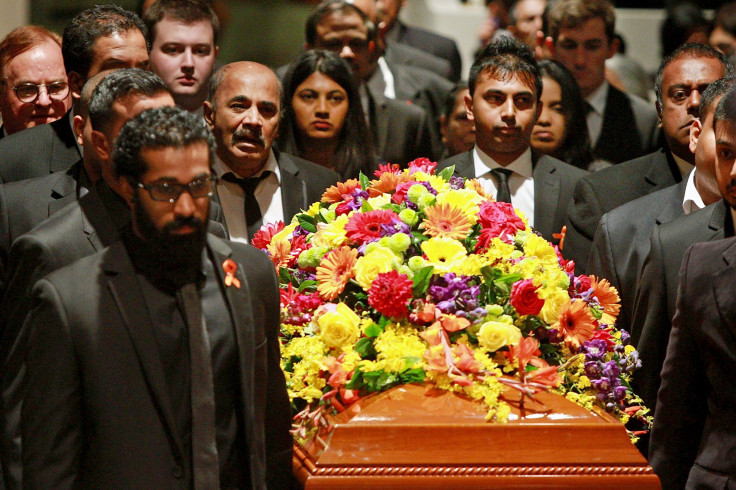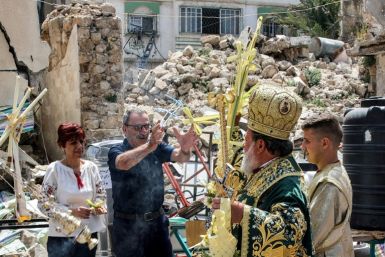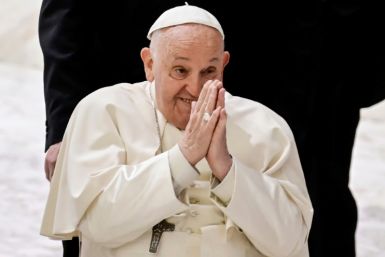Bali 9 Funeral: Myuran Sukumaran Cremated, Says ‘I Don’t Want To Die’ Before Execution By Firing Squad [Video]

Myuran Sukumaran, executed ringleader of Bali Nine, told his artist mentor Ben Quilty prior to former’s execution on April 29 in Indonesia that he did not want to die. Yet, Quilty said Sukumaran did so courageously and with dignity.
The artist spoke before more than a thousand crowd gathered at DaySping Church, Castle Hill on Friday, May 9 for Sukumaran’s funeral service. He was 34 and for seeking to stealthily sneak in heroin to Australia from Indonesia, he had to pay with his life.
Quilty narrated that during Sukumaran’s detention, he was rehabilitated and remorseful for his offences. Sukumaran wanted his family to be proud of him and to remember him not as a drug convict, but as someone who reached out to others.
Most of Sukumaran’s time at Kerobokan Prison was spent painting, five of which were held by easels and displayed during the funeral. Quilty continued engaging his audience by saying that through paintings, Sukumaran conveyed to the world who he was until the end.
“Under unimaginable circumstances, Myuran was making the most potent and powerful anti-death penalty images the world has seen in a long, long time. Myu did want to live. He had many paintings to make,” Quilty was quoted by Sydney Morning Herald.
Legacy
Perhaps it was not the fact that a cry for the abolition of death penalty resonated across the world to prolong the life of Bali Nine ringleaders and six others who were eventually convicted that could be said to be Bali 9’s legacy. Instead, it was the fact that not only were Sukumaran and Andrew Chan were reformed, but they were also instrumental to the life of their fellow inmates.
Sally Warhaft, Sukumaran’s close friend, also spoke during the funeral service and said that Kerobokan Prison “was not a place of beauty.” In fact, Warhaft described the detention places as “nothing good going for it at all.” But as Sukumaran reformed from within, “everyone was touched.”
Fellow Bali Nine member Matthew Norman wrote a message which was read during the service by Warhaft, saying Sukumaran’s rehabilitation served as a precedence among drug addicts, thieves and murderers who joined rehabilitation programs.
Sukumaran left the execution field with a community he established. The paintings he crafted were sold to raise funds to help an inmate undergo a life-saving operation, according to his cousin. Sukumaran ensured none of his dearest was feeling down.
Watch the video below for Raji Sukumaran’s message during the funeral:
Credits: YouTube/ Douglas Nagy
Below is a video of Sukumaran's coffin being ushered.
Credits: YouTube/ Dragon Lee
For comments or feedback on the article, contact the writer at kizmet@ymail.com.






